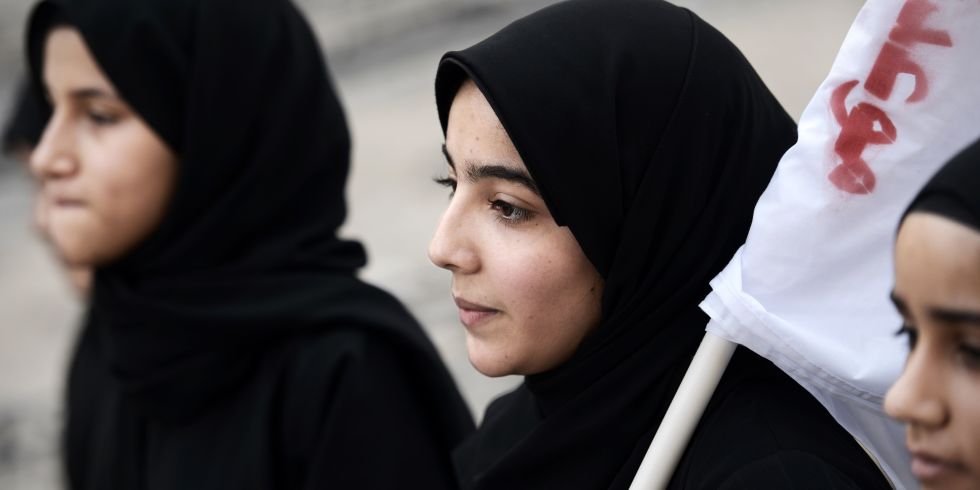The Crown Prince of Saudi Arabia announced in 2016 that he plans to diversify his country’s economy by the year 2030. The plan, which Mohammad bin Salman calls “Saudi Arabia’s vision for 2030,” will help the kingdom become less reliant on the oil industry by transforming its economy and society, and one of his goals is to improve the status of Saudi Arabian women.
Historically, women in Saudi Arabia have been denied the same rights as men. The society is highly segregated by gender and, as a result, Saudi women have much stricter rules regarding what they can and cannot do in public and private spheres.
Hopefully, the position of Saudi Arabian women in society will be changing in the coming years. Mohammad bin Salman intends to integrate women’s rights into his vision for Saudi Arabia’s future, and his hope is that the country will become more moderate.
Women and girls have already been allowed to play sports in schools since last year, acquire government services without a male guardian’s approval and more top positions in technology and finance have been filled by women in recent years.
The social landscape of Saudi Arabia has already been changing as women gain more rights, and their fight for equal treatment is not over yet. Here are four things that women in Saudi Arabia will be able to do within the next year.
1. Attend Sporting Events
As of this year, Saudi Arabian women will finally be allowed to attend live sporting events. The first soccer match with an integrated audience in the country’s history took place this January.
Three soccer stadiums — the King Fahd Stadium in Riyadh, King Abdullah Sport City in Jeddah and Prince Mohammad bin Fahd Stadium in Dammam — which were previously male-only, will now be open to women and families.
Prior to the government announcing these changes in October of last year, women were only able to watch their favorite teams on TV. Some women were even arrested for attempting to sneak into stadiums.
While attending sporting events probably was not a high priority on the list of things Saudi women wanted changed, this step is still progress and is crucial to making the society less segregated.
2. Join the Military
Saudi Arabian women will now be able to serve in some military positions as of February of this year. Women will mainly serve in security roles and are banned from combat positions for now.
According to Gulf News, female applicants must meet multiple requirements to join the military. Women must either be Saudi nationals or have been living with their fathers abroad on official assignments, have a high school diploma or an equivalent degree, be between 25 and 35 years old, be at least 5’1″ and meet physical fitness requirements.
They must also pass a variety of tests, have no criminal record or previous experience with the Saudi government or military or be married to a non-Saudi. They are required to get permission from their male guardians, who must also live in the region in which the women have applied.
Americans may criticize the fact that Saudi women are not allowed to work in every military position, completely ignoring the fact that the United States only recently allowed women to serve in combat roles in the past few years.
Despite the restrictive nature of the application process, allowing Saudi women into any part of the military is progress and might merely be the first step in loosening requirements and expanding women’s access to all roles in the military, including combat positions.
3. Speak out Against Sexual Harassment
The Saudi Arabian government has recently passed a law which allows Saudi Arabian women to come forward when they have been sexually harassed. The law, which was announced last December, declares that anyone found guilty of sexually harassing a Saudi woman will be flogged or imprisoned.
Saudi officials have stated that harassment goes against Islamic principles and will now be more receptive to changing these conditions for women in the country.
The new law works in conjunction with other laws allowing women to have more access to public spaces. The government has clearly realized that women must feel safe in public, and putting the law in place allows them to feel as if they have more autonomy.
Saudi Arabian women have also been using the Twitter hashtag #MosqueMeToo as a Muslim-specific version of the #MeToo hashtag. Though the hashtag was started by an Egyptian woman, women of all nationalities, including Saudi women, have been using the hashtag.
Through #MosqueMeToo, Saudi women have been recounting their experiences involving sexual harassment during Hajj, which is the yearly Islamic pilgrimage to Mecca in Saudi Arabia. The hashtag differs from the more general #MeToo movement by giving Muslim women a space specifically for them to air their grievances.
Prominent Muslim women, such as Saba Ghori, hope that the hashtag will give Muslim men a wake-up call and that the movement might also encourage the imam of the Great Mosque in Mecca to give a sermon to Muslim men that conveys how shameful it is to harass women.
Some women, however, fear that bringing more attention to sexual harassment will unintentionally cause more conservative men in the country to twist the message and propose more restrictive gender segregation rules than before. Women worry that they might not be able to pray alongside men in Mecca as they have been able to do for many years.
Saudi women do not yet know how the new law and hashtag will impact their daily lives, but it will soon be clear to the Saudi government if these implementations are working and, if not, how they can be improved.
4. Drive
Last September, a royal decree was issued in Saudi Arabia stating that female citizens will be able to drive by the summer of 2018. The Saudi ambassador to the United States, Prince Khalid bin Salman, has said that women will not be required to have their guardians’ permission to obtain licenses or have their guardians present while driving.
Women have been driving as a form of rebellion since at least the 1990s. Saudi Arabian women have been arrested for attempting to drive, but that hasn’t stopped activists like Manal al-Sharif from fighting for their rights. Al-Sharif has been crucial to the organization of this decade’s protests against the driving ban. Now, her next goal is to end male guardianship rules.
Final Thoughts
Despite the advances being made for women in Saudi Arabia, there will still be naysayers who will not have anything positive to say about the country’s progress. While there are Saudi citizens who do not approve of these steps to grant equality to women, many citizens welcome these changes with open arms.
Granted, it is not yet known how much Saudi women’s lives will improve in the next few years, nor do people know to what extent the government is willing to change their laws, but they should be given the chance to prove themselves.
Additionally, one must keep in mind that it is okay to criticize the situation at hand, but there is a fine line between criticism and judgment. It is crucial for non-Saudis, especially those in the U.S., to remain objective and keep feelings of superiority at bay when discussing issues that affect this region.
Non-Saudis who are keeping an eye on the country’s conditions must realize that it is simply impossible to completely overhaul an entire country’s culture overnight. Long-standing patriarchal traditions cannot be eradicated all at once — thus, that is why these changes will be taking place over the next decade.
Nevertheless, the Crown Prince is taking steps to make his country more moderate. Changes are already being implemented relatively quickly, and Mohammad bin Salman most likely knows that rapidly changing societal norms will result in greater social turmoil.
Instead of infantilizing the citizens of Saudi Arabia and acting as if they need outsider help to bring their country into modernity, it is crucial to understand that they have the ability and the drive to change their own culture from within.
The prince, who is heir apparent to the throne, has done many disgraceful things, such as imprisoning citizens who disagree with the Saudi government. The negative tends to outweigh the positive and there is much to criticize, but people must give credit where credit is due. For now, there is hope that the future will be a brighter and freer place for Saudi Arabian women.

















